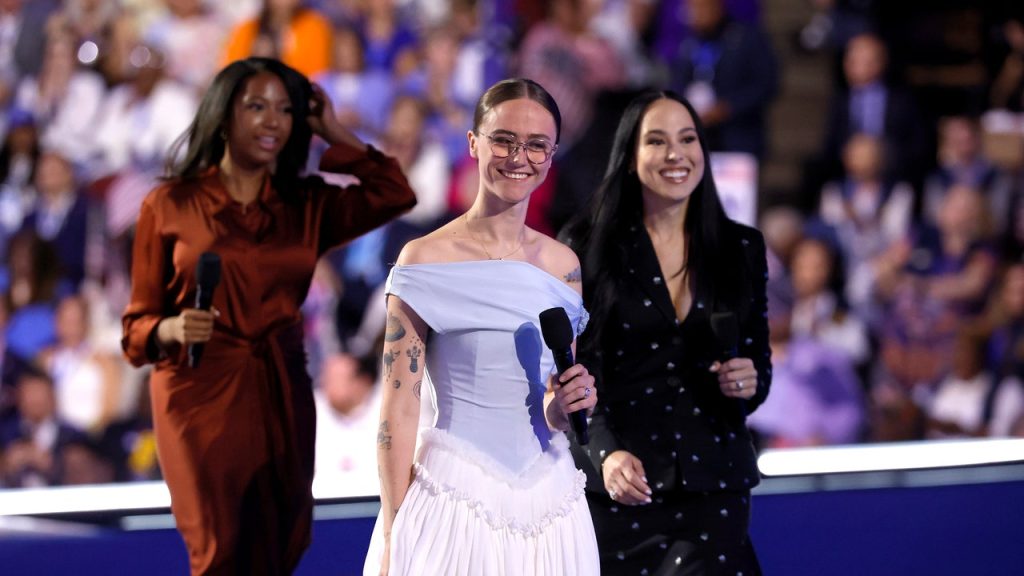The Republican party continues to promote the traditional nuclear family as the ideal, with vice presidential nominee J.D. Vance criticizing “childless cat ladies” and suggesting that parents should have more voting power. This narrow definition of family excludes many alternative family structures, such as interracial and interethnic marriages, LGBTQ+ marriages, and families with fewer children or no children at all. The GOP’s limited view of what a family should look like is evident in their criticism of individuals with tattoos and their disbelief in the diversity of family structures in the modern world.
On the other hand, the Democratic National Convention in Chicago showcased a more inclusive and diverse vision of family. Vice President Kamala Harris’s blended, extended family was highlighted during the event, including her stepchildren, nieces, and her husband Doug Emhoff’s ex-wife. This representation of a modern family reflects the changing demographics of the country, with more women opting not to have children, having fewer children, or choosing to have children outside of marriage. The acceptance and celebration of these diverse family structures at the DNC stand in stark contrast to the conservative views promoted by the Republican party.
The debate over what constitutes a family is not new, but it is particularly salient in the current political climate. The clash between traditional, patriarchal views of family upheld by the Republican party and the inclusive, diverse portrayals of family at the DNC underscores broader cultural and societal shifts towards acceptance and recognition of various family structures. The visibility of Harris’s blended, extended family on the national stage serves as a powerful symbol of progress and inclusivity in a country that is increasingly diverse and dynamic.
While the GOP continues to uphold traditional family values and criticize alternative family structures, the Democratic party is embracing and celebrating the diversity of modern families. The representation of Harris’s blended family at the DNC sends a message of acceptance and inclusivity, challenging the rigid, outdated ideas of family perpetuated by conservative Republicans. As the country becomes more diverse and the concept of family evolves, political discussions around family values are likely to become even more polarized.
The spotlight on family dynamics at the DNC and the contrasting views of family at the RNC highlight the deep divide between the two major political parties in the U.S. The RNC’s focus on traditional nuclear families and criticism of alternative family structures reveal a reluctance to embrace changing societal norms and values. In contrast, the DNC’s celebration of diverse family structures reflects a more progressive and inclusive approach to defining and recognizing families in the 21st century.
Overall, the representation of family at the DNC and the RNC reflects larger cultural shifts and political ideologies regarding family values in the United States. The clash between traditional, conservative views of family and more progressive, inclusive perspectives underscores the ongoing debate over what constitutes a family in contemporary society. As the country continues to diversify and evolve, the discourse around family values and structures is likely to remain a central issue in political and cultural discussions.













